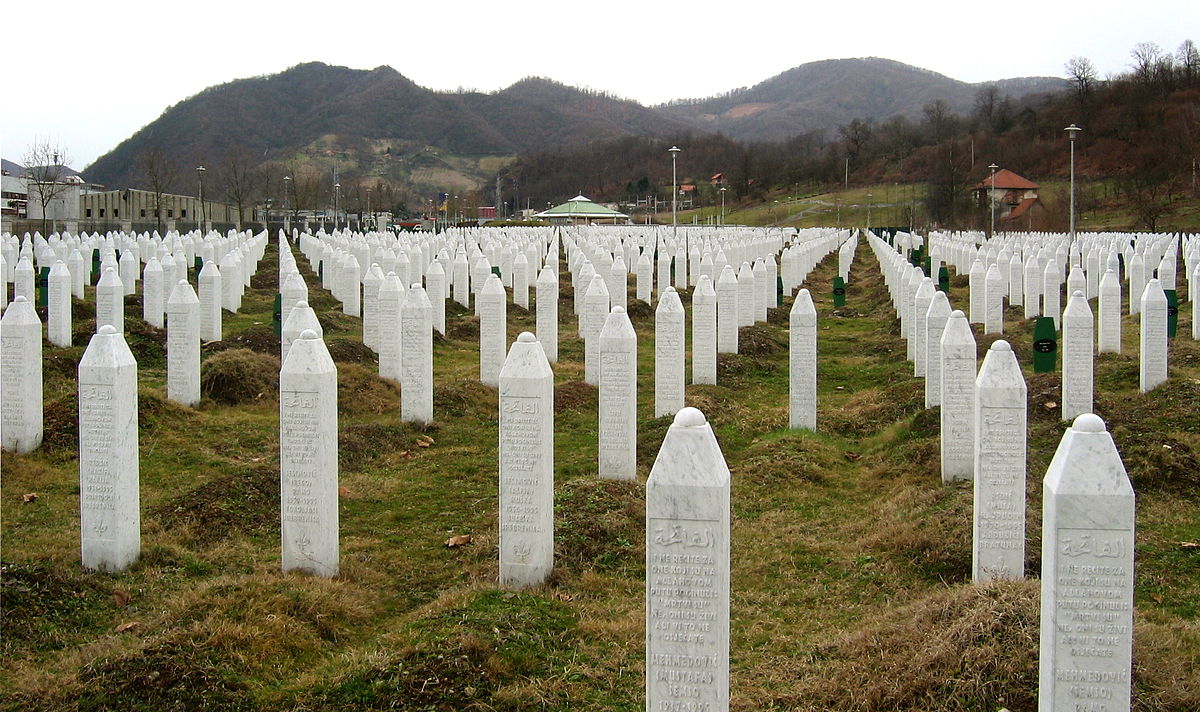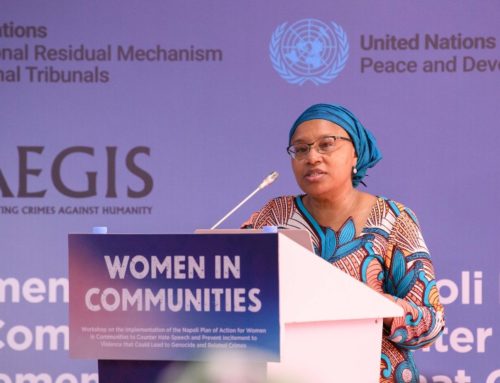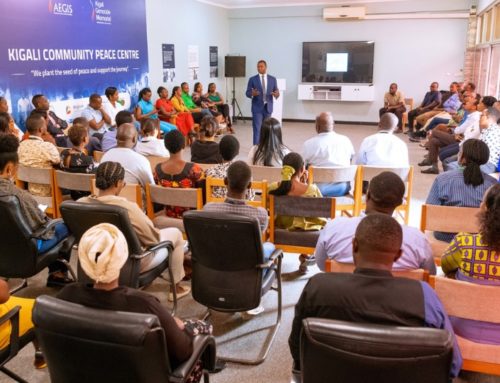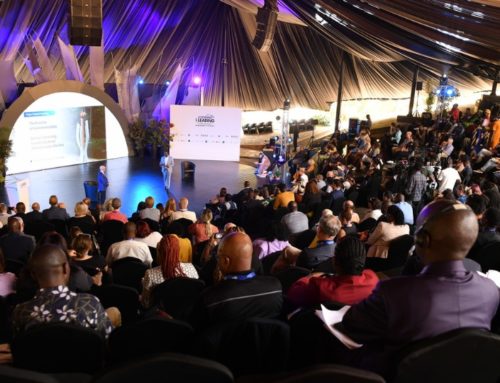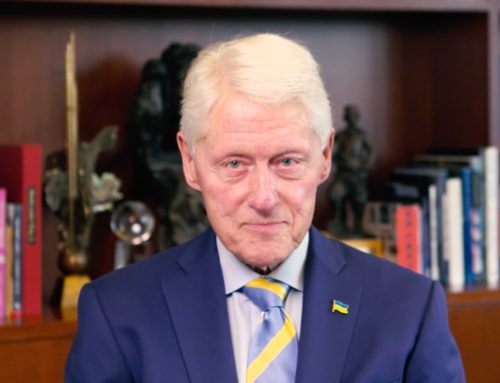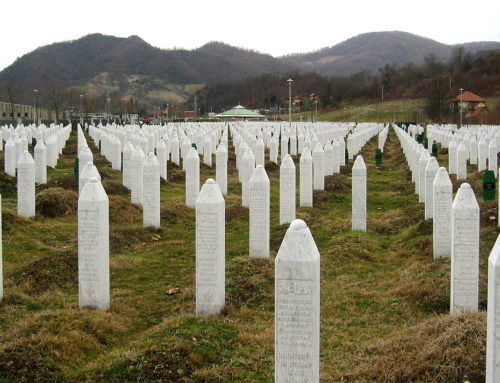The lengthy trial of Radovan Karadžić came to end yesterday, the verdict confirming that he is guilty on 10 of the 11 charges levelled against him.
Karadžić has been on trial at the ICTY for participating, between the years 1992 and 1995, in a “joint criminal enterprise” wherein Serb nationalists, with backing from Slobodan Milošević in Belgrade, unleashed a wave of violence across Bosnia as Yugoslavia fell apart. Karadžić served as the first president of the break-away para-state ‘Republika Srpska’ and the Commander-in-Chief of its army, with Ratko Mladić, also on trial in The Hague, serving as his General.
Karadžić’s indictment included two counts of genocide, one for the massacres in Srebrenica, the other for the carefully planned and well executed campaign of extermination across the rest of Bosnia, especially in the north-western corner of the country. Also on the list were five counts of crimes against humanity, including persecution, extermination, murder, deportation, and forcible transfer. Finally, there were four counts of violations of the laws or customs of war including murder, terror, the taking of hostages, and unlawful attacks on civilians.
With help and support from Serbia, the Republika Srpska and a network of politicians, criminals and war criminals, both Karadžić and Mladić were able to avoid capture – until Karadžić was finally arrested in Belgrade in July 2008. He had re-invented himself as a faith healer.
Yesterday the court found him guilty of all the charges, except the second count of genocide. This represents a victory for the survivors of genocide at Srebrenica. It indicates clearly that the massacres that took place after the town fell, came as the result of a plan carried out under the authority of the Bosnian Serb leadership. It indicates the existence of ‘specific intent to destroy Bosnian Muslims as an ethnic group’ – specific intent to destroy is an element vital to conviction for genocide, and the conviction has been welcomed by Adama Dieng, UN Special Advisor on the Prevention of Genocide.
One of the most important charges in the indictment was the second count of genocide, in which Karadzic was charged with genocide in the rest of Bosnia. This represented an opportunity for the ICTY to state, loudly and clearly, that the ethnic cleansing campaign which was carried out throughout the municipalities in Bosnia – in addition to Srebrenica – were also committed with the specific intent to destroy Bosnian Muslims as an ethnic group. This charge is the only one which did not result in a conviction. However, Karadzic was convicted for war crimes and crimes against humanity based upon the pattern of ethnic cleansing of the Bosnian municipalities, serious crimes which have resulted in a long prison sentence. Over the coming months, the excavation of the mortal remains of a huge number of north-western Bosnia’s Muslim population from mass graves near the small village called Tomašica will continue. Experts estimate that the graves hold around 1,000 people.
The judgement’s dry, legal terminology represents a vast amount of suffering. What the above really means is the following. This was a lengthy centrally planned campaign, executed by both military and militia forces to literally remove and eradicate any traces of a Muslim population from the parts of Bosnia they wished to claim. Cities (Sarajevo, Goražde) were for years, besieged and relentlessly bombarded; “Shell them to the point of madness” was the infamous command issued by Ratko Mladić, as his artillery arraigned itself over Sarajevo. Other towns such as Zvornik, Bijeljina, Brčko, Vlasenica and Višegrad were quite literally, physically emptied of their Muslim population, burned alive in houses, shot into rivers and mass graves. In other towns, such as Foča, rape camps were opened, in Prijedor in Bosnia’s Northwest, a string of concentration camps were set up wherein the local Muslim population were held and all kinds of torture visited upon them.
Finally in 1995, the enclaves of Zepa and Srebrenica, isolated and besieged by the Serbs since 1992, fell to them under the noses of the hapless UN. All the captured men and boys (mainly civilians) were executed. Their remains were buried, dug up, re-buried, dug up again, and re-buried for a third time, with the sole purpose of making future identification impossible.
These brief details represent only a fraction of the crimes listed on Karadžić’s indictment.
Bosnia is today still deeply divided. The unrepentant nature of Serbian nationalism, which varies between spiteful outright denial, desperate equivocation or a gloating satisfaction, is widening the divide still further. Recently, the Bosnian-Serb leadership, lead by Milorad Dodik, who is widely viewed as an “unabashed nationalist and the greatest threat to Bosnia and Herzegovina’s fragile, multiethnic peace” (Petersen, 2011, Western Intervention in the Balkans: The Strategic Use of Emotion in Conflict) has stepped up its provocative defence of Karadžić. This week, Mr Dodik opened a student dorm named after the man himself. Essentially – as the Economist writer and Balkan expert Tim Judah writes: “Mr Dodik wants to finish the job Mr Karadzic started but left unfinished: destroying Bosnia-Herzegovina.” Large murals and graffiti in support of Mladić, Karadžić and other figures can be found throughout the country. Recently, the most powerful Serb political party nominated a man widely acknowledged as responsible for the “cleansing” of the Muslim population of Vlasenica, as their candidate for Vice-Governor of Bosnia’s Central Bank. Over the past weeks, the Bosnian-Serb municipality of Prijedor approved the creation of a memorial room (for Serbs) directly next to the former concentration camp in Trnopolje (famously discovered by journalists Ed Vulliamy and Penny Marshal) wherein they interned the Muslim population of the surrounding villages. In Serbia, the situation is little better. Yesterday, after the verdict was announced, hundreds of nationalist hard-liners lead by the politician Vojislav Šešelj (also on trial in the Hague for war crimes) gathered in Belgrade to protest the verdict, carrying banners with the faces of Karadžić, Mladić and Valdimir Putin.
With this verdict, however, Bosnia’s plight is not laid to rest. This does not mean that the international community, members of whom share the Bosnian Serb leadership’s culpability for the tragedy, can finally afford to leave Bosnia alone, now that ‘justice’ has been served. No; we must, more than ever, work to ensure first and foremost that the tragedies, whatever their legal label, are remembered, that the victims are remembered, the survivors are heard and allowed to bury and commemorate their lost ones without disturbance or obstruction by nationalists – and that a peaceful future is ensured for the youth.

